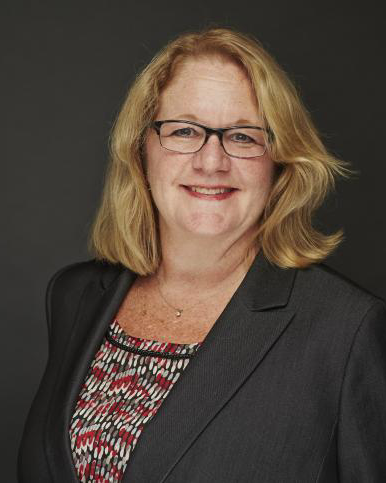Redesigning the Broken U.S. Health System: The Nursing Profession’s Role in Ending Unequal Treatment
May 14, 2025
3:00 PM - 4:00 PM (ET)
Webinar Details
In June 2024, the National Academies of Sciences, Engineering, and Medicine (NASEM) released Ending Unequal Treatment: Strategies to Achieve Equitable Health Care and Optimal Health for All—a follow-up to the original Unequal Treatment report from 2003. Ending Unequal Treatment offers a comprehensive, deeply researched, evidence-based review of health and health inequities within the US healthcare system. The report explores the barriers that continue to undermine efforts to achieve more equitable healthcare, including behavioral health, and presents recommendations for future actions that would achieve a more effective and sustained approach to addressing the problem, with implications for the nursing profession. This presentation will provide an overview of the Ending Unequal Treatment report and highlight what the findings mean for nurses and other health professionals, including their role in eliminating health and healthcare inequities.
Objectives:
- Review and summarize the current state of healthcare and health inequities in the U.S., the evolving political moment, and the role of nurses and other healthcare professionals in responding to these uncertain times.
- Identify enduring, fundamental truths for the nursing profession that can guide efforts to eliminate health inequities.
- Integrate social and clinical care principles with key strategies to advance an interdisciplinary health workforce, policy advocacy, and systems change to end unequal treatment.
This Webinar is hosted by Jonas Nursing.

Speakers
Speaker
 Vincent Guilamo-Ramos, PhD, MSN, MPH, MS, MSW, BS, RN, ANP-BC, LCSW, PMHNP-BC, FAAN
Vincent Guilamo-Ramos, PhD, MSN, MPH, MS, MSW, BS, RN, ANP-BC, LCSW, PMHNP-BC, FAAN
Executive Director
Institute for Policy Solutions
Leona B. Carpenter Chair in Health Equity and Social Determinants of Health Professor
Johns Hopkins University School of Nursing
Dr. Vincent Guilamo-Ramos is the Executive Director of the Institute for Policy Solutions and the Leona B. Carpenter Chair in Health Equity and Social Determinants of Health (SDOH) at the Johns Hopkins School of Nursing. He is also the founding director of the Center for Latino Adolescent and Family Health (CLAFH). Dr. Guilamo-Ramos is a nurse practitioner, dually licensed in adult health and psychiatric-mental health nursing.
Widely regarded as a scholar and leader in SDOH and in developing, evaluating, and translating nurse-driven, community-based interventions, his research has been funded for two decades by NIH, CDC, and various federal agencies. His work has been published in leading scientific journals, including The New England Journal of Medicine, The Lancet, The British Medical Journal, Nature Medicine, Clinical Infectious Diseases, and the American Journal of Public Health.
Dr. Guilamo-Ramos has served as a member of the ad hoc NASEM Committee on Unequal Treatment Revisited: The Current State of Racial and Ethnic Disparities in Healthcare; the NASEM Standing Committee on Reproductive Health, Equity, and Society; and the board of UnidosUS, the nation’s largest Latino-focused civil rights organization. He also serves on the Latino Commission on AIDS Board of Directors as vice chair and as the chair of the board of directors for Power to Decide.
Tags
Redesigning the Broken U.S. Health System: The Nursing Profession’s Role in Ending Unequal Treatment
May 14, 2025
3:00 PM - 4:00 PM (ET)
Webinar Details
In June 2024, the National Academies of Sciences, Engineering, and Medicine (NASEM) released Ending Unequal Treatment: Strategies to Achieve Equitable Health Care and Optimal Health for All—a follow-up to the original Unequal Treatment report from 2003. Ending Unequal Treatment offers a comprehensive, deeply researched, evidence-based review of health and health inequities within the US healthcare system. The report explores the barriers that continue to undermine efforts to achieve more equitable healthcare, including behavioral health, and presents recommendations for future actions that would achieve a more effective and sustained approach to addressing the problem, with implications for the nursing profession. This presentation will provide an overview of the Ending Unequal Treatment report and highlight what the findings mean for nurses and other health professionals, including their role in eliminating health and healthcare inequities.
Objectives:
- Review and summarize the current state of healthcare and health inequities in the U.S., the evolving political moment, and the role of nurses and other healthcare professionals in responding to these uncertain times.
- Identify enduring, fundamental truths for the nursing profession that can guide efforts to eliminate health inequities.
- Integrate social and clinical care principles with key strategies to advance an interdisciplinary health workforce, policy advocacy, and systems change to end unequal treatment.
This Webinar is hosted by Jonas Nursing.

Speakers
Speaker
 Vincent Guilamo-Ramos, PhD, MSN, MPH, MS, MSW, BS, RN, ANP-BC, LCSW, PMHNP-BC, FAAN
Vincent Guilamo-Ramos, PhD, MSN, MPH, MS, MSW, BS, RN, ANP-BC, LCSW, PMHNP-BC, FAAN
Executive Director
Institute for Policy Solutions
Leona B. Carpenter Chair in Health Equity and Social Determinants of Health Professor
Johns Hopkins University School of Nursing
Dr. Vincent Guilamo-Ramos is the Executive Director of the Institute for Policy Solutions and the Leona B. Carpenter Chair in Health Equity and Social Determinants of Health (SDOH) at the Johns Hopkins School of Nursing. He is also the founding director of the Center for Latino Adolescent and Family Health (CLAFH). Dr. Guilamo-Ramos is a nurse practitioner, dually licensed in adult health and psychiatric-mental health nursing.
Widely regarded as a scholar and leader in SDOH and in developing, evaluating, and translating nurse-driven, community-based interventions, his research has been funded for two decades by NIH, CDC, and various federal agencies. His work has been published in leading scientific journals, including The New England Journal of Medicine, The Lancet, The British Medical Journal, Nature Medicine, Clinical Infectious Diseases, and the American Journal of Public Health.
Dr. Guilamo-Ramos has served as a member of the ad hoc NASEM Committee on Unequal Treatment Revisited: The Current State of Racial and Ethnic Disparities in Healthcare; the NASEM Standing Committee on Reproductive Health, Equity, and Society; and the board of UnidosUS, the nation’s largest Latino-focused civil rights organization. He also serves on the Latino Commission on AIDS Board of Directors as vice chair and as the chair of the board of directors for Power to Decide.
Tags
Redesigning the Broken U.S. Health System: The Nursing Profession’s Role in Ending Unequal Treatment
May 14, 2025
3:00 PM - 4:00 PM (ET)
Webinar Details
In June 2024, the National Academies of Sciences, Engineering, and Medicine (NASEM) released Ending Unequal Treatment: Strategies to Achieve Equitable Health Care and Optimal Health for All—a follow-up to the original Unequal Treatment report from 2003. Ending Unequal Treatment offers a comprehensive, deeply researched, evidence-based review of health and health inequities within the US healthcare system. The report explores the barriers that continue to undermine efforts to achieve more equitable healthcare, including behavioral health, and presents recommendations for future actions that would achieve a more effective and sustained approach to addressing the problem, with implications for the nursing profession. This presentation will provide an overview of the Ending Unequal Treatment report and highlight what the findings mean for nurses and other health professionals, including their role in eliminating health and healthcare inequities.
Objectives:
- Review and summarize the current state of healthcare and health inequities in the U.S., the evolving political moment, and the role of nurses and other healthcare professionals in responding to these uncertain times.
- Identify enduring, fundamental truths for the nursing profession that can guide efforts to eliminate health inequities.
- Integrate social and clinical care principles with key strategies to advance an interdisciplinary health workforce, policy advocacy, and systems change to end unequal treatment.
This Webinar is hosted by Jonas Nursing.

Speakers
Speaker
 Vincent Guilamo-Ramos, PhD, MSN, MPH, MS, MSW, BS, RN, ANP-BC, LCSW, PMHNP-BC, FAAN
Vincent Guilamo-Ramos, PhD, MSN, MPH, MS, MSW, BS, RN, ANP-BC, LCSW, PMHNP-BC, FAAN
Executive Director
Institute for Policy Solutions
Leona B. Carpenter Chair in Health Equity and Social Determinants of Health Professor
Johns Hopkins University School of Nursing
Dr. Vincent Guilamo-Ramos is the Executive Director of the Institute for Policy Solutions and the Leona B. Carpenter Chair in Health Equity and Social Determinants of Health (SDOH) at the Johns Hopkins School of Nursing. He is also the founding director of the Center for Latino Adolescent and Family Health (CLAFH). Dr. Guilamo-Ramos is a nurse practitioner, dually licensed in adult health and psychiatric-mental health nursing.
Widely regarded as a scholar and leader in SDOH and in developing, evaluating, and translating nurse-driven, community-based interventions, his research has been funded for two decades by NIH, CDC, and various federal agencies. His work has been published in leading scientific journals, including The New England Journal of Medicine, The Lancet, The British Medical Journal, Nature Medicine, Clinical Infectious Diseases, and the American Journal of Public Health.
Dr. Guilamo-Ramos has served as a member of the ad hoc NASEM Committee on Unequal Treatment Revisited: The Current State of Racial and Ethnic Disparities in Healthcare; the NASEM Standing Committee on Reproductive Health, Equity, and Society; and the board of UnidosUS, the nation’s largest Latino-focused civil rights organization. He also serves on the Latino Commission on AIDS Board of Directors as vice chair and as the chair of the board of directors for Power to Decide.
Tags
Addressing the Harmful Effects of Gaslighting in Academic Nursing
April 18, 2024
2:00 PM - 3:00 PM (ET)
Webinar Details
Gaslighting is an insidious and subtle form of workplace bullying characterized by emotional abuse and psychological manipulation which causes the person on the receiving end to question their beliefs, memories, or perceptions of reality. Gaslighting can lead to confusion, loss of confidence, uncertainty of one's mental stability, and negatively impact the workplace culture. Despite the negative impacts of gaslighting, some individuals tolerate the behavior for fear of losing their job, work identity, or financial security. When left unaddressed, gaslighting can cause targets to second guess or question their reality, ruminate about past conversations, or blame themselves for ongoing conflicts. During this webinar, we'll talk about what gaslighting is, how it shows up in nursing schools, and what we can do about it.
Objectives:
- Describe gaslighting behavior and its effects.
- Identify 1-2 examples of gaslighting behavior occurring in nursing academe.
- Implement 1-2 strategies to address the harmful effects of gaslighting behaviors.
Note: Recording of the webinar will be available soon after the webinar airs. Visit AACN's On-Demand Webinars to watch.
Speakers
Speakers

Cynthia Clark, PhD, RN, ANEF, FAAN
Founder and Consultant for Civility Matters
Professor Emeritus at Boise State University
Dr. Cynthia Clark is Founder of Civility Matters, Professor Emeritus at Boise State University, and an award-winning professor, scholar, and author. She serves as a fellow in the American Academy of Nursing, the NLN Academy of Nursing Education, and co-chaired the American Nurses Association Professional Panel on Incivility, Bullying, and Workplace Violence. Dr. Clark is best known for her ground-breaking work on fostering civility and healthy work and learning environments around the globe. Her theory-driven interventions, empirical measurements, theoretical models, and reflective assessments provide best practices to prevent, measure, and address incivility to create healthy, productive workplaces.
Dr. Clark is the recipient of numerous teaching, service, and research awards and widely acclaimed for her engaging presentations. Her empirical assessments have been translated into 16 world languages and used by scholars in 32 countries on 5 continents. The 1st edition of Creating and Sustaining Civility in Nursing Education received 1st place honors as the 2013 AJN Book of the Year. The 2nd edition is available and the 3rd edition is underway. Her recent book, Core Competencies of Civility for Nursing & Healthcare, is a must-read for all nurses and health care professionals. Dr. Clark is a community builder and an unwavering advocate for a kinder, gentler, and more civil world.
Tags
Using Design Thinking to Thread the Social Determinants of Health into Undergraduate Curriculum
March 09, 2023
2:00 PM - 3:00 PM (ET)
Webinar Details
Nurse educators Dr. Mary Jo Vetter, Dr. Karyn Boyar, Dr. Stacen Keating, and Dr. Emerson E. Ea describe how design thinking was utilized as a unifying framework to foster an understanding of the social determinants of health in an undergraduate nursing program. Students utilize design thinking to develop innovative solutions for clinical problems experienced by diverse populations across all spheres of care in a series of four sequenced courses. Details of the teaching strategy and how it supports the acquisition of competencies defined by AACN Essentials are shared.
Objectives:
- Describe how design thinking was utilized as a unifying framework to foster an understanding of the social determinants of health in an undergraduate nursing program.
- Discuss teaching strategies utilized to promote the acquisition of competencies defined by AACN’s Essential Core Competencies for Professional Nursing Education.
- Explore methods to evaluate competency-based student outcomes.
Speakers
Speakers

Mary Jo Vetter, DNP, RN
Director, Doctor of Nursing Practice Program and Clinical Associate Professor
New York University
Mary Jo Vetter is a Clinical Associate Professor and Director of the DNP Program at NYU Meyers College of Nursing. Dr. Vetter co-led the integration of Design Thinking in the undergraduate curriculum at Meyers. As a nurse entrepreneur, she engages in clinical practice as the founder of VetterAPN Consulting promoting clinical and care management strategies to support successful aging in place. Dr. Vetter focuses her scholarship on evidence-based quality improvement, designing and implementing cutting-edge, NP led, primary care services in the community, and virtual care delivery. She has a proven track record of innovation in practice and education that focuses on promoting the nurse practitioner as leader and has received awards and accolades for her contributions to clinical academic partnerships, advancing and leading the profession, and transforming advanced practice nursing.

Karyn Boyar, DNP, RN
Director, Master of Science, Clinical Research Program and Clinical Assistant Professor
New York University
Karyn Boyar is an Assistant Clinical Professor at NYU Rory Meyers College of Nursing, the director for the Master in Clinical Nursing Research Program, Interim FNP Program Director, as well as a Certified Nurse Educator. As an educator and family nurse practitioner specializing in neurology and long-term care, she teaches both didactic and clinical courses and simulation. She has over 25 years of experience in healthcare and over ten years of experience in the clinical care and management of patients with Parkinson’s disease and Dystonia. Before joining the faculty at NYU, Boyar was the clinical specialty coordinator at Mount Sinai School of Medicine and the designated outreach coordinator for the National Parkins on Center of Excellence at the Robert and John M. Benheim Center for Movement Disorders. Boyar earned her DNP from Pace University and MS and BS in nursing science from Pace University. Currently, she serves on the board of directors of the IARCN (International Association of Clinical Research Nurses) as a member-at-large. Her current scholarship focus; bringing Design Thinking Models to life for undergraduate students in the large classroom. She has presented her work on Design Thinking on the local, national and international levels and has contributed several book chapters disseminating this innovation in teaching.

Stacen Keating, PhD, RN
Clinical Associate Professor
New York University
Stacen A. Keating is a Clinical Associate Professor at NYU's Rory Meyers College of Nursing. Dr. Keating teaches across programs in both the undergraduate, graduate and doctoral departments (DNP). She has established competencies in Instructional Design as well as Design Thinking (DT). Design Thinking is a means of teaching nurses a framework of creative thinking and innovation and has established a process for utilizing this framework within her public health classes. Her areas of scholarship interest are further focused on global public health. She has written numerous publications related to both educator and student needs. A key focus has been to assist nurse educators and students attain access to the most evidenced based resources to achieve excellence within professional nursing practice. Dr. Keating is on the Nursing Advisory Board for Nurses International, a 501c3 organization devoted to providing excellence in global nursing education, especially in countries with limited resources. Dr. Keating has developed educational products in collaboration with colleagues at Nurses International which are open access resources and are readily available at Nurses international's main website. Key courses relate to: oncology nursing, fundamentals of nursing and medical surgical nursing. Additional courses taught at NYU include: Community/Public Health Nursing (UG), Applied Epidemiology (DNP), Environment and the Health of Populations (G) and Psych Nursing (UG, simulation).

Emerson E. Ea, PhD, DNP, APRN, FAAN
Dean, Clinical and Adjunct Faculty Affairs
New York University
Dr. Emerson Ea is the associate dean and a clinical associate professor at NYU Rory Meyers College of Nursing. His scholarship interest areas include nursing education and innovation, immigrant health and well-being, and cardiovascular health. He has published peer-reviewed articles and authored/co-authored books and several book chapters on topics that relate to work and personal-related outcomes among internationally educated nurses, Filipino immigrant health, gerontologic nursing, and nursing education and practice. Dr. Ea was part of the inaugural cohort of the American Academy of Nursing Jonas Policy Scholars working with the Cultural Competence and Health Equity Expert Panel (2014–2016). Dr. Ea is a Fellow of the American Association of Colleges of Nursing Leadership in Academic Nursing Program, the New York Academy of Medicine, and the American Academy of Nursing. He is also chair of the Kalusugan Coalition, a community organization that aims to promote cardiovascular health among Filipino Americans in the New York metropolitan area, and chair of the Education Committee of the Philippine Nurses Association of America. Dr. Ea earned a PhD in nursing from Duquesne University, Doctor of Nursing Practice (DNP) from Case Western Reserve University, MS in adult health from Long Island University, and BSN from the University of St. La Salle, Philippines.